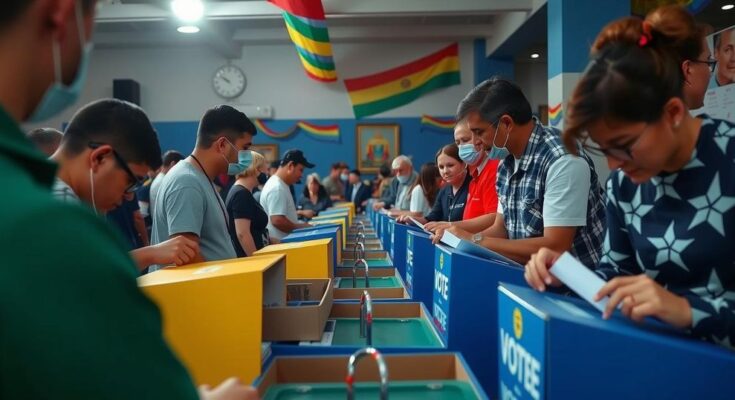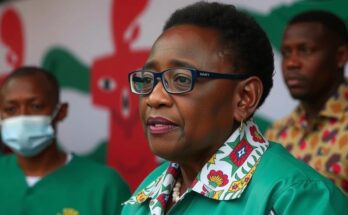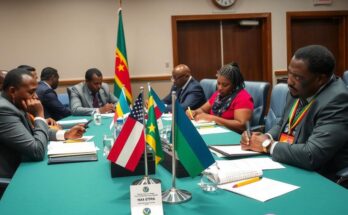Uruguay’s presidential run-off election sees voters choosing between leftist candidate Yamandu Orsi and right-wing Alvaro Delgado. With tight race metrics and no major policy shifts proposed, both candidates aim to secure undecided voters. The moderate political environment has kept tensions more contained compared to other countries. Early voting commenced at 8 AM and will conclude at 7:30 PM.
The presidential run-off election in Uruguay is currently underway, where voters must choose between the leftist Frente Amplio (Broad Front) candidate, Yamandu Orsi, and his rival Alvaro Delgado of the National Party. This election is particularly significant, as it involves the potential return to power of the left, particularly under the influence of former President Jose “Pepe” Mujica, after a five-year reign of the right-wing administration led by President Luis Lacalle Pou. Ballot stations opened at 8 AM local time and are set to close at 7:30 PM, with initial results expected shortly thereafter.
Uruguayans face a critical choice in this tightly contested race, with less than 25,000 votes anticipated to separate the candidates, showcasing the close political landscape. Orsi of the Broad Front achieved 43.9% in the previous round, while Delgado garnered 26.8%, supported by the conservative Colorado Party. The political climate in Uruguay remains relatively stable compared to other Latin American nations, where sharp ideological divisions often lead to heightened tensions.
Despite President Lacalle Pou’s considerable approval rating, the ruling coalition has encountered challenges, particularly regarding crime rates, which may influence the election outcome. Notably, neither candidate has presented new policies in hopes of appealing to undecided voters, as both aim to attract support from the 8% of first-round voters who opted for smaller parties. The election not only offers insight into Uruguay’s political dynamics but also serves as a broader commentary on the global trend of challenging incumbents amidst economic difficulties.
The upcoming presidential run-off in Uruguay reflects a crucial moment in the nation’s political landscape as the left seeks to regain power after a period of right-wing governance. With a population of approximately 3.4 million, the election features significant candidates, including the leftist Hiroshi Orsi and National Party member Alvaro Delgado. The tension is palpable, as polls indicate a closely divided electorate, akin to other nations facing economic strains and political discontent. This election stands out uniquely, however, due to the relatively amicable political discourse within Uruguay, compared to the political volatility characterizing its neighbors.
The Uruguayan run-off election encapsulates a pivotal shift as voters conclude their selection between the leftist and right-wing candidates. With tight margins and an evolving political landscape, the outcome will be interesting, especially considering that both candidates are vying to attract votes from smaller and undecided parties. The election also serves as a vital barometer, potentially indicating whether incumbent support can withstand ongoing national economic challenges and global political trends.
Original Source: www.aljazeera.com




